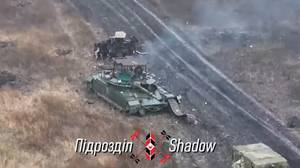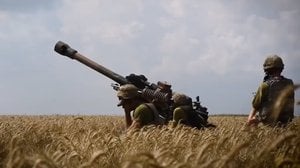
Journalist Uncovers Why Russians Volunteer to Fight in Ukraine
Published 5 months ago
Some of the Russians fighting in Ukraine are recruited from prisons, men with nothing to lose. Others are conscripts, though few men are conscripted from Moscow or St. Petersburg. Some are foreigners, lured to Russian from places such as Africa with promises of work, and when the set foot on Russian soil they are presented with conscriptions papers and shoved into the nearest recruitment office. And then there are those who continue to volunteer, despite the rumors from the front and the growing military cemeteries in the rear. But why? According to these Russian prisoners of war, its money.
Since the early months of the war, Ukrainian journalist Volodymyr Zolkin has interviewed consenting Russian prisoners of war, discussing their background, how they entered military service, the conditions under which they were captured, and whether any of the tales they were told about Ukrainians being Nazis were true (spoiler, they are not). The nature of those interviews has changed as the war has progressed, and in recent months Zolkin and his team have explored the reasons that Russians continue to volunteer to serve as fodder for Ukrainian guns. The answer is money. Many Russians live in depressed economic conditions, with low wages and high interest rates, and realizing the goal of owning a home or starting a business is beyond the means of many Russian workers. The financial incentives offered to volunteers seem small to western observers, but to many Russians are substantial enough lure them into signing military contracts. Many are unaware of the politics of the conflict, or of the fates suffered by those who went before them as the Russian government has successfully managed the flow information in Russian media.
Men fighting for money is not a new phenomenon. The late Middle Ages witnessed the rise of mercenary companies hired by princes and monarchs who could not afford large standing armies, and even today great powers rely heavily on private military contractors. And looking beyond the use of private mercenaries, even regular armies utilize financial incentives to encourage recruitment. If you watch the interviews with the World War II paratroopers made famous in the mini-series Band of Brothers, at least one admits that he volunteered for the paratroopers for the additional pay, and the Unites States military offers bonuses to attract recruits and retain experienced service members. Yet despite the precedent, there is something so sad and corrupt about these Russian soldiers whose existence is so miserable that they are willing to kill and be led to their doom for a few pitiful pieces of silver.
About the Author

Cam
Cam served as an infantry officer in the Marine Corps, deploying to the Horn of Africa and participating in combat operations in Iraq. He currently works in the maritime industry and in the defense sector as an instructor of combined arms planning and operations. An avid sailor, Cam founded and directs Triumph Sailing, a nonprofit that supports veterans and first responders through adventure and fellowship on the water. Triumph Sailing is preparing for the 2024 season of sailing on Galveston Bay and in the Gulf of Mexico. You can support the mission and next year's sailing season at Tri-Sail.Org.













